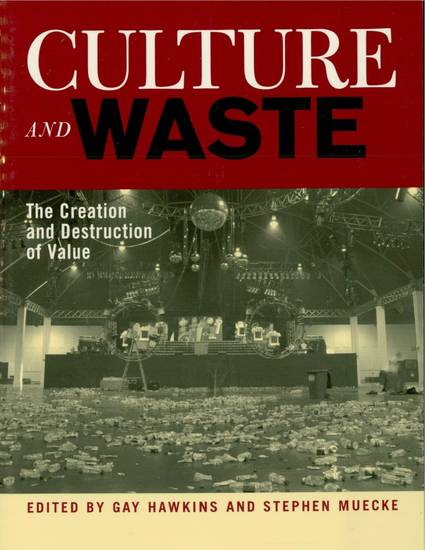
Contribution to Book
Psychic waste: Freud, Fechner and the principle of constancy
Culture and Waste: The Creation and Destruction of Value
(2002)
Abstract
Twentieth-century culture is obsessed with waste. We worry about whether or not to recycle it, how to dispose of it, whether it is safe, and what will happen to it when we have finally got rid of it. Detritus has its own taxonomy: “rubbish,” “garbage,” and “litter,” for example, construct it as an essentially random, cumulative phenomenon, a by-product of our daily domestic lives. To call something “waste,” on the other hand, is to invoke its history. Nuclear waste, bodily waste, and medical waste are all the result of specific processes: they gesture back to the productive economies that generated them. Even in these days of recycling, waste is almost always disposed of or repudiated, sometimes indifferently, sometimes contemptuously, and even, on occasion, violently.
Keywords
- waste,
- Freud,
- Fechner
Disciplines
Publication Date
Winter December 24, 2002
Editor
Gay Hawkins and Stephen Muecke
Publisher
Rowman & Littlefield
ISBN
978-0742519824
DOI
https://rowman.com/ISBN/9780742576049/Culture-and-Waste-The-Creation-and-Destruction-of-Value
Citation Information
Suzanne Raitt. "Psychic waste: Freud, Fechner and the principle of constancy" Lanham, MarylandCulture and Waste: The Creation and Destruction of Value (2002) p. 73 - 83 Available at: http://works.bepress.com/suzanne-raitt/13/
